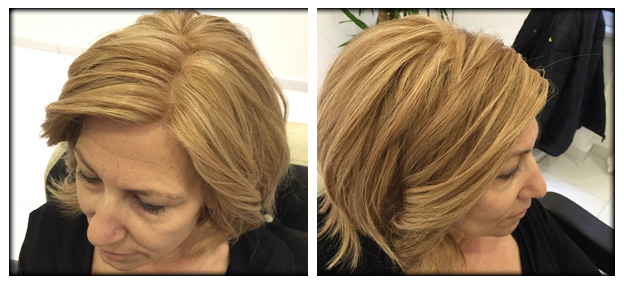Hairing During Chemotherapy

Hairing During Chemotherapy
Hair losses, experienced due to chemotherapy throughout the chemotherapy, may be psychologically challenging for the person. This is a temporary situation; therefore, you should concentrate on the treatment. Hair loss will stop, and hair will start to grow upon completion of the treatment. Hair loss usually starts about 3 weeks after starting the chemotherapy treatment. Hair starts to grow again a few months after the treatment is over.
Hair lost is growing more abundantly compared to the past
Any drugs, used for the treatment of cancer, may lead to hair loss. However, not every drug or every chemotherapy leads to hair loss. In such case, if the patient's hair is to be lost, then the physician will inform the patient about such matter in advance. What is important at this stage is not the maintenance and protection of the hair, but the successful completion of the treatment. The patient will regain his/her hair lost after the treatment is completed.
Why does the chemotherapy lead to hair loss?
Chemotherapy is the total of drug treatments applied in order to kill cancer cells. The drugs attack the cancer cells and start to penetrate them in order to prevent them from growing. However, unfortunately, it can also affect and damage normal cells, such as hair follicles, in the body. This leads to hair loss called as "Alopecia". Unlike cancer cells, normal cells quickly renew themselves. Thus, when the hair is lost as a consequence of the chemotherapy, the hair starts to grow again upon the completion of the treatment.
Do all of the chemotherapy drugs lead to hair loss?
All chemotherapy treatments do not cause hair loss. At this stage, some people may have less hair loss. In some people, however, partial or complete baldness may occur temporarily. Some chemotherapy drugs may also lead to the loss of hairs available in other parts of the body; e.g. eyebrows, eyelashes, chest hairs, armpit hairs, leg hairs or hairs in the genital area. The amount of hair lost is closely associated with the drug used, the dose applied and the response of the body to the drug. If hair loss is to occur, it usually occurs within a few weeks after starting the chemotherapy; however, it rarely occurs on the first few days. The loss process is firstly noticed while combing the hair, while having a bath, and while observing hairball on your pillow when you get up in the mornings. In some patients, the hair only thins but is not lost. Various people may keep losing their hair for a few weeks until they lose their whole hair. Sometimes hair loss occurs within a day or two; however, this is not a frequent situation.
Does the hair lost due to chemotherapy grow again?
The hair will grow again after the treatment is completed. In the first stage, the hair will be thin; however, it will become as before three months later. It is possible that the hair is more voluminous or curly compared to the past, even its color may be slightly different than before.
What is the psychological effect of hair loss during this treatment?
Throughout the treatment, patients have to cope with many differences and changes. In particular, hair loss has negative effects on the patients due to the fact that it will remind them of their disease when they look in the mirror every time. They may be out of patience upon occurrence of hair loss. Therefore, the patients, who lose their hair, may experience anger, depression, furiousness or embarrassment.
Whether the patient is a female or a male, hair, eyebrows or eyelashes are an important part for the outer appearance. Hair loss may make the patient feel like someone who is weak and helpless, or who is apparent to be cancer.
This can lead to lack of self-confidence for the patient. What is needed to be known here is that your hair will already grow again. The important thing is that the patient tries to complete this period happily without the overstress and with the possibly highest motivation. Once the treatment is completed successfully, the hair will grow again.
If the eyebrows and eyelashes are also lost, this may be a more uncomfortable and stressful factor. Reactions should be completely normal. It is very important to accept this situation and look on the bright side.
Hair is not a sign of fertility or sexual identity. The important thing in this process is health. When the treatment is completed and the cancer has disappeared, the person will have abundant and voluminous hair as before. Some people think that they should have healthy hair in order to feel good in general.
If the hair has a special meaning for the person, then it can be harder to get used to hair loss. Other people's reactions to hair loss can also make it difficult to cope with it. You can also be present in the same environment together with those who are uncomfortable with the hairless appearance. At this stage, it is very important that the patient calmly describes the situation to other people, or that s/he is not affected by them at all.
Hemen Bilgi Al!
Formu doldurarak bilgi talebinde bulunabilirsiniz.
